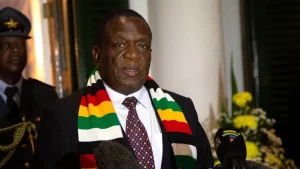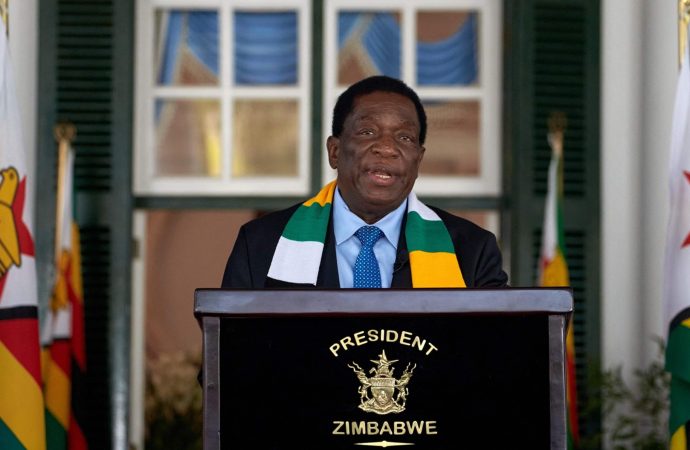Introduction Zimbabwe, a nation with a history of political unrest and transitions, recently witnessed its incumbent president securing re-election amidst widespread criticism over irregularities in the voting process. The election, although deemed contentious, has significant implications for the country’s political landscape and its relationship with the international community. Election Controversy and Irregularities The electoral process
Introduction
Zimbabwe, a nation with a history of political unrest and transitions, recently witnessed its incumbent president securing re-election amidst widespread criticism over irregularities in the voting process. The election, although deemed contentious, has significant implications for the country’s political landscape and its relationship with the international community.

Image by: https://academy.com
Election Controversy and Irregularities
The electoral process in Zimbabwe’s recent presidential election came under intense scrutiny due to alleged irregularities. Reports of voter suppression, questionable ballot handling, and limited access to polling stations raised concerns about the fairness and transparency of the voting process. International observers, as well as local watchdog organizations, pointed out these issues, casting doubt on the legitimacy of the election results.
President’s Re-Election: Implications and Reactions
Despite the controversy surrounding the election, the incumbent president managed to secure re-election. This outcome has triggered a range of reactions both domestically and internationally. Supporters of the president celebrate the victory as a continuation of stability, while opposition groups and their global allies view it as a setback for democratic progress. The international community’s response to the re-election varied. Some nations expressed concern over the alleged irregularities and called for a thorough investigation, while others chose to acknowledge the results without delving into the controversies. This divergence in opinions underscores the complex dynamics at play and highlights the challenge of striking a balance between respecting national sovereignty and upholding democratic standards.
Ensuring Transparent and Fair Elections
To move forward from this contentious election, Zimbabwe must address the issues that marred the voting process. Ensuring transparent and fair elections is crucial not only for the country’s internal stability but also for its international standing. Reforms in the electoral system, unbiased monitoring by independent organizations, and efforts to enhance voter education can collectively contribute to rebuilding trust in the democratic process. Furthermore, embracing technology to create a more efficient and secure voting system could help mitigate some of the concerns raised during this election. Implementing measures such as biometric voter registration and electronic ballot tracking could enhance transparency and reduce the potential for irregularities.
Conclusion
In conclusion, Zimbabwe’s recent presidential election, while resulting in the re-election of the incumbent president, faced criticism due to perceived irregularities in the voting process. The implications of this election extend beyond national borders, sparking debates about democratic principles and international relations. Moving forward, it is imperative for Zimbabwe to take concrete steps towards transparent and fair elections to restore confidence in its democratic system.

















Leave a Comment
Your email address will not be published. Required fields are marked with *